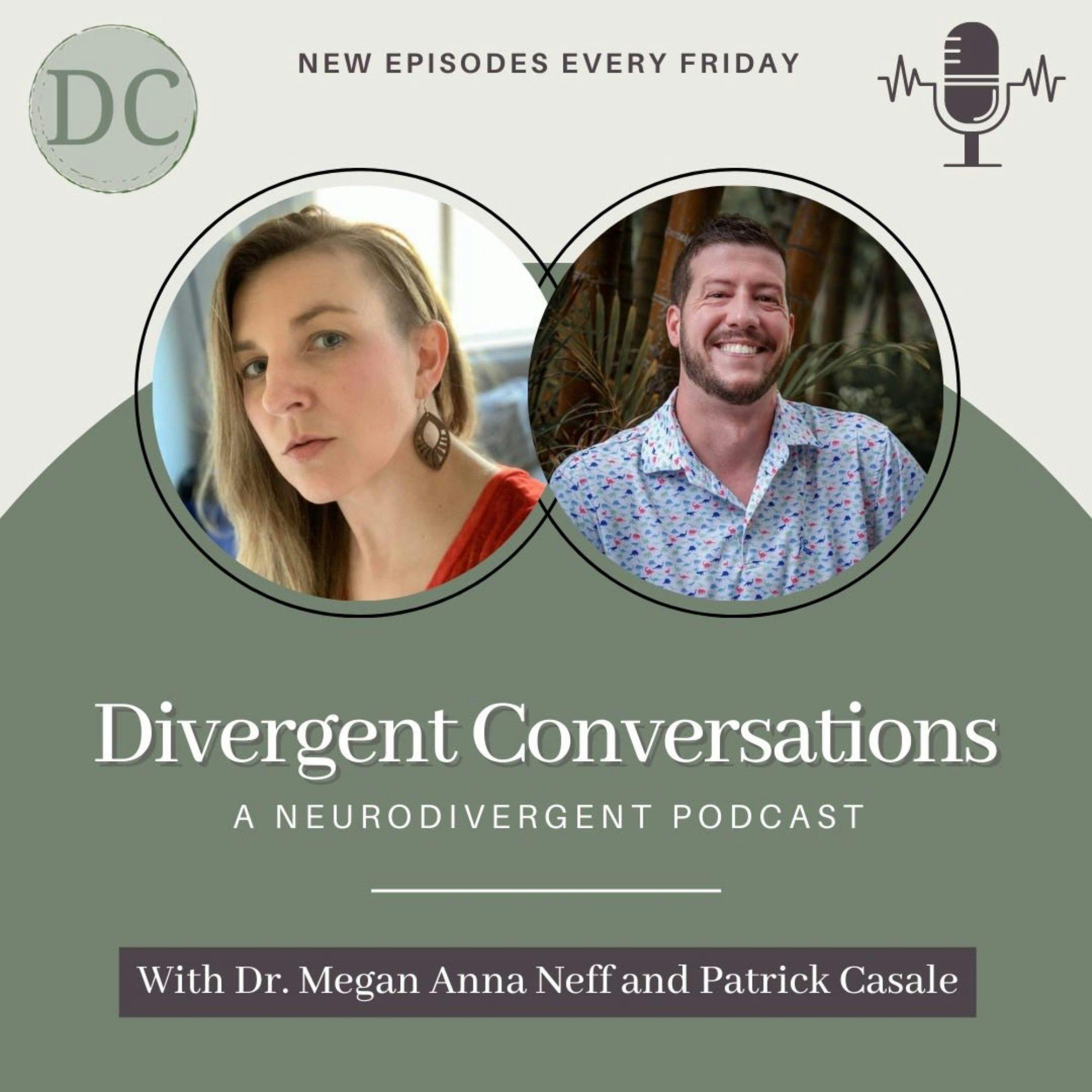Episode 13: When Little Things Feel Huge: Neurodivergent Perspectives on Routine Disruptions
Description
Difficulty with unexpected changes or routine disruptions is a pivotal part of being Autistic and even small changes can result in a surge of irritation.
In regards to routine or plan changes, Dr. Neff described her feelings as an Autistic person: "Once I'm, like, emotionally checked out of something, I'm out."
Patrick Casale shared his experience saying that it's very hard to get back into a place where he feels mentally regulated, and he just gets very irritated, very easily.
In this episode, Dr. Megan Anna Neff and Patrick Casale, both AuDHDer mental health professionals, share their own struggles, experiences, and feelings around routine disruptions, being over- or under-stimulated in day-to-day life, and learning to better understand their reactions to small and big changes through the lens of their diagnosis.
Top 3 reasons to listen to the entire episode:
Understand the challenges faced by ADHDers and Autistic people when it comes to sensory stimulation and emotional regulation.
Identify the difference between Autistic-ADHDers and pure Autistic people around routine disruption and routine changes.
Learn strategies to cope and self-soothe emotions such as anxiety caused by routine disruption.
It can at times feel frustrating or shameful for Autistic people to experience strong emotions or feel upset by what others see as seemingly insignificant things. However, by recognizing these feelings and understanding that they are part of our neurodivergent nature, we can help combat self-criticism and better advocate for our needs.
Transcript
PATRICK CASALE: Hey, everyone, you are listening to the Divergent Conversations Podcast. We are two neurodivergent mental health professionals in a neurotypical world. I'm Patrick Casale.
MEGAN NEFF: And I'm Dr. Neff.
PATRICK CASALE: And during these episodes, we do talk about sensitive subjects, mental health, and there are some conversations that can certainly feel a bit overwhelming. So, we do just want to use that disclosure and disclaimer before jumping in. And thanks for listening.
MEGAN NEFF: Patrick, you just asked if I could start it off and now I'm trying to remember the script of how we start. But maybe [CROSSTALK 00:00:39]-
PATRICK CASALE: No, no. We don't need a script because we already recorded it.
MEGAN NEFF: Okay. So, here's a tale of how I am. We've recorded several episodes and this is the first one where I'm sitting. So, to me, that's a to tell, like, I know, I'm not feeling well.
PATRICK CASALE: Yeah, usually, you're kind of standing [CROSSTALK 00:00:26]-
MEGAN NEFF: Like, usually, I'm standing, I'm moving. Today. I'm like, sitting. I have all the weight on me which means I'm also overheating. Do you ever do that where it's like, you want weight but then, you're overheating?
PATRICK CASALE: Yep.
MEGAN NEFF: So, I'll probably be, like, sweating through today's episode because I want the weight.
PATRICK CASALE: Megan is not feeling well, so let's give her a lot of credit for being here.
MEGAN NEFF: No, I did something kind of mean to you today that I would have hated if it was the opposite. I texted you and I was like, "Hey, can we skip recording because I'm not feeling well." And then, I was going to try to get some more sleep, and then, I texted you, and I was like, "Never mind, let's record." Which I sort of like schedule change once I'm like, emotionally checked out or something I'm like out. So, I don't know, I'm just curious.
PATRICK CASALE: Thanks for that, yeah. Yeah, I was emotionally checked out because I had a podcast before this that I was doing with someone else. And then, I was like, "Oh, my day is done. Like, I'm just going to go eat lunch." And then, I don't look at my phone when I'm podcasting, obviously. And then, like, I looked at it, and I was like, "Oh, shit, we can record."
So, I wanted to because I've been away, it helps us get back in a groove, and like, we're running out of episodes. So, I was like, "I'm just going to switch my
More Episodes
ADHD often brings unique challenges with impulsive behaviors which can make everyday interactions and tasks more complex. In an attempt to better understand the ways ADHD can present in daily life, this episode uses the DSM-5 diagnostic criteria as a framework for discussion—this is not an...
Published 06/14/24
Published 06/14/24
ADHD hyperactive traits are often misunderstood and the DSM-5’s portrayal of this type is heavily geared toward children and adolescents, which can make it harder to understand and address in adulthood. In an attempt to better understand the ways ADHD can present in daily life, this episode uses...
Published 06/07/24


